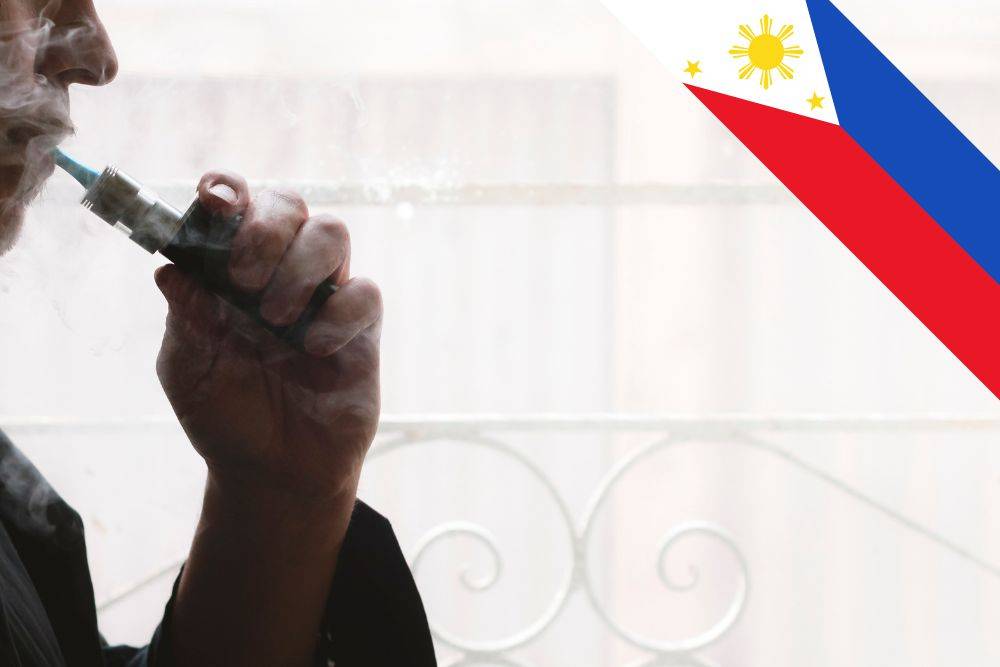The Department of Health (DOH) has confirmed the first documented vaping-related death in the Philippines.
This incident involving e-cigarettes and vaping raised significant concerns among health experts and prompted discussions on the regulation of electronic cigarettes in the country.
Details of the Case
A 16-year-old girl from the Visayas region has been identified as the victim. She had been using e-cigarettes for several months before experiencing severe respiratory distress. Despite medical interventions, her condition worsened, leading to her untimely death. This case marks a significant and alarming milestone as the first confirmed fatality linked to vaping in the Philippines
Health Experts’ Response
Health experts, including pulmonologists and tobacco cessation advocates, have voiced their concerns about the rising trend of vaping among the youth. Maricar Limpin, a prominent pulmonologist, highlighted that one out of every seven Filipino youths aged 13 to 15 are using vapes. She emphasised that the aggressive marketing strategies of the vaping industry are significantly contributing to this trend.
Medical Insights on Vaping-Related Illnesses
Vaping-related illnesses, often referred to as E-cigarette or Vaping Product Use-Associated Lung Injury (EVALI), have been linked to various harmful substances found in e-cigarettes. The symptoms of EVALI include severe respiratory distress, cough, chest pain, and shortness of breath. In some cases, patients may also experience gastrointestinal symptoms such as nausea, vomiting, and diarrhoea.
Dr Riz Gonzales, Chairperson of the Tobacco Control Advocacy Group of the Philippine Pediatric Society, explained that the primary issue with EVALI. EVALI is found to cause severe lung inflammation. This inflammation is often caused by the inhalation of harmful substances such as vitamin E acetate. This substance is commonly found in many e-liquids and is known to interfere with normal lung function.
Chemical Composition and Risks
E-cigarettes function by heating a liquid to generate an aerosol, which users then inhale. This liquid typically comprises nicotine, various flavourings, and a range of other chemicals. The inhalation of these substances poses significant health risks. Dr Gonzales explained that heating e-liquids produce a complex aerosol containing numerous harmful byproducts. Among these byproducts are heavy metals such as lead and nickel, volatile organic compounds (VOCs) like formaldehyde and acetaldehyde, and a variety of other toxic chemicals.
These hazardous substances can have serious health implications, including irreversible damage to lung tissue over time. The presence of heavy metals and VOCs in the aerosol is particularly concerning, as researchers have linked them to respiratory issues, cardiovascular problems, and even cancer. Continuous exposure to these toxic elements through the inhalation of e-cigarette aerosols can lead to chronic respiratory conditions and a decline in overall lung function.
Government Actions and Legislative Measures
The DOH has been advocating for stricter regulations on e-cigarettes and vaping products. Pasay City recently implemented an ordinance prohibiting the use of vaping devices in public spaces. They also banned the sale of such products to minors. This move aligns with the health department’s broader call for stringent controls to protect public health.
Legislators have also been pushing for increased taxes on vaping products and better regulatory frameworks. House Bill 1026, for instance, aims to incrementally raise the excise tax on vapor products. This has been generating additional revenue for the government’s Universal Health Care program while also discouraging the use of such products.
The Broader Impact
This tragic incident underscores the urgent need for comprehensive regulations on vaping products to prevent further health crises. The DOH and other health advocates are urging the government to implement stricter policies to safeguard the youth and general population from the potentially severe health risks associated with vaping. As the country grapples with this new public health challenge, the focus remains on ensuring that appropriate measures are in place to mitigate risks and protect the well-being of Filipinos.
Have a pressing question for a doctor? Medical Channel Asia has launched a community forum page where you can get questions answered by a medical specialist. Visit the community forum here.

